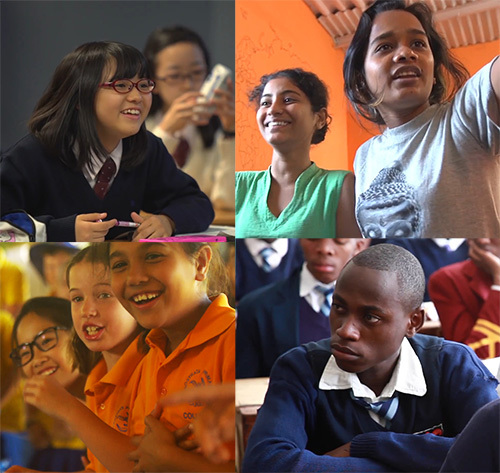
Pope Francis announced the winner of the $1 million Global Teacher Prize 2016: Hanan Al Hroub from Samiha Khalil High School, Al-Bireh, Palestine. The celebrity studded ceremony took place last month at the Global Education and Skills Forum in Dubai, and celebrated the top teachers in the world. Hanan Al Hroub won the coveted prize out of 8,000 nominations for teachers from 148 countries around the world. The Global Search for Education had the pleasure to interview Hanan and the other 9 finalists, Aqeela Asifi, Ayub Mohamud, Colin Hegarty, Joe Fatheree, Kazuya Takahashi, Michael Soskil, Richard Johnson, Maarit Rossi and Robin Chaurasiya, just before the ceremony.
Around the world, educators, parents and students know quality teachers matter immensely. I asked the finalists how they think we can make teaching a more prestigious career. How can we entice better quality talent from more lucrative careers into classrooms? How do we retain good teachers and make sure they are where they are needed most? These were their answers:
Colin Hegarty: The most important thing we can do to help make teaching be regarded as a more prestigious career is to tell the stories of the wonderful and inspiring work they are already doing and share that with students, parents, teachers and the wider community. Telling these positive stories shares the profound impact a teacher can have on our lives. We all connect with stories and they speak to our soul; so as well as using them to thank the great work of existing teachers, they can inspire our communities to highly regard teachers and attract brilliant people into the profession for future generations.
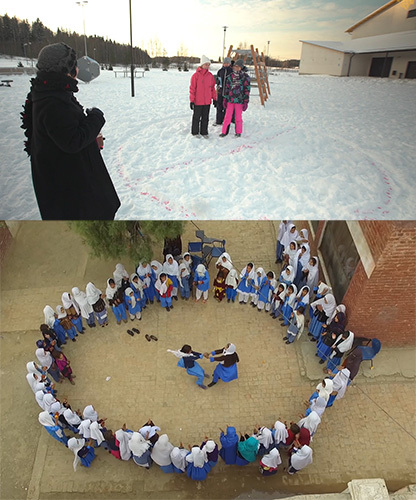
Hanan Al Haroub: I agree with the saying that the teachers are the real power in this world. They are the only ones who can change societies, the ones who can create productive and active generations. Using well organized plans to achieve this goal, we should offer prestige, respect, good conditions, and good salary for teachers. This will enhance the teaching profession and will increase the numbers of graduates who will look at education as a secure and future profession, and equate this profession with other famous professions such as medicine, engineering, law, etc.
Richard Johnson: Provide salaries and conditions to entice bright, innovative/creative minds and lift the profile of the profession. Look towards how we can solve the problem of teaching to the test. While standardized testing isn’t going away, we can do more to make the learning journey more exciting and in fact more effective with a culture of high tech, project based learning where learners are immersed in 21st century learning skills from an early age. Retaining good teachers is a case of selecting the right ones from the beginning. Interviewing and selection processes should be in place to determine passion and temperament required for teaching.
Aqeela Asifi: We can make teaching more prestigious by showing its importance to the communities, and by giving it value in our society. We should invest in the education sector and give teachers the sense that their future is stable in this profession and help them realize their importance in serving their communities. Teachers should believe their future in teaching is stable. If they believe they are stable they will remain in education.
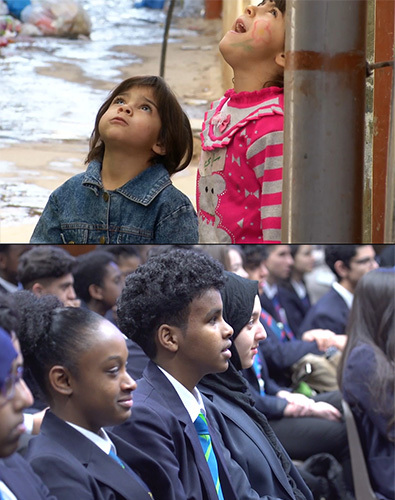
Maarit Rossi: We have to change the negative image of the teacher’s career to a positive, prestigious, and desirable career. We can read in newspapers that when school reforms are done, the budget is most likely undersized and the teachers are overburdened with work. Administration should provide proper funds and support so that teachers can manage their work. Every young or new teacher who starts working at a school needs a good introduction to the school’s practices and a mentor to help him/her during the first year. When a salary is on the right level in a society, it also tells the members that the profession is valued. In many countries, the teacher’s salary is low compared to other similar level professions.
Joe Fatheree: Public opinion about the value of a teacher must change for the profession to be considered prestigious enough to lure our brightest minds into seriously considering education as a viable career. Respect is a missing ingredient for many professional educators. Career lattices, pay, and working conditions are important additional factors. However, the most significant concern I hear from prospective candidates and veteran teachers is they want their efforts and opinions to matter and be respected by all members of the greater community.
Mike Soskil: Effective leaders will affirm that inspired and empowered individuals are more productive and exceed expectations. Unfortunately, many efforts to reform education through standardization of teaching and learning, and shifting control from classrooms to boardrooms have served to disenfranchise educators. Instead of having their professional expertise valued and used to improve the lives of their students, teachers are being told to conform to programs developed by outsiders with no knowledge of the individual needs of students. If we wish to attract talented individuals into the teaching profession and retain excellent teachers already in service, we must organize our educational systems so students, teachers, parents, administrators, and policy makers are partners rather than a control-based hierarchy. We must focus on providing inspiration, support, and autonomy to teachers so that they may provide the same to students. Only when we treat teachers as the professionals that they are, will we see the success that we desire in our schools.
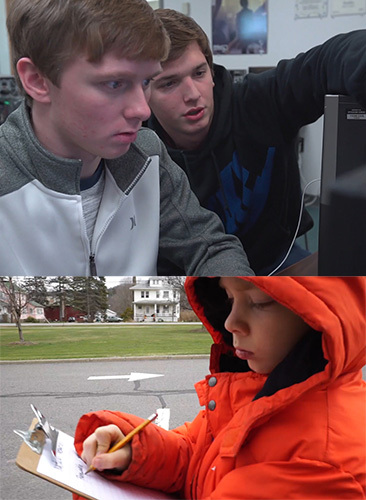
Ayub Mohamud: We can make teaching a more prestigious career by investing time and energy on the creativity and innovation of teachers and students in their classrooms and communities. Also making teaching lucrative and rewarding will create avenues where teachers can support the students to become the next innovators who are changing their communities and schools. This will greatly contribute to practical educational models where students learn practical skills in schools and set up sustainable businesses and also come up with solutions to their developmental challenges. Additionally, connecting the corporate leaders and teachers in the classrooms will also allow exchange of knowledge and skills to help teachers better do their work in the classroom.
Robin Chaurasi: I can’t speak for the whole world, but I can speak for India in saying that teaching is considered an “if all else fails” career. And this is also the mentality of schools and employers: if one leaves, we can find another. Very few people are concerned about quality, accountability, or sustainability. Clearly, India’s many teaching fellowships are also not designed to lure teachers in for a lifetime or long term career, they are only (very) short-term solutions. For the younger generation making career choices, I think this has a lot to do with the lack of investment in teachers as well as the unreasonable requests made of them, e.g. to teach classrooms of 50-100 students, to catch up children who are 5-10 years behind.
Kazuya Takahasi: There is not a simple answer. Education is the only way to change the world. If teachers and business people work together, as my school’s students worked with a social entrepreneur in Indonesia, schools can teach students that they can change the world through business. Keep working on strengthening a relationship between schools and business, there might emerge a new movement. So the best way to show teaching is a prestigious career is to educate kind and passionate challengers in the business world. They know education is as important as business.
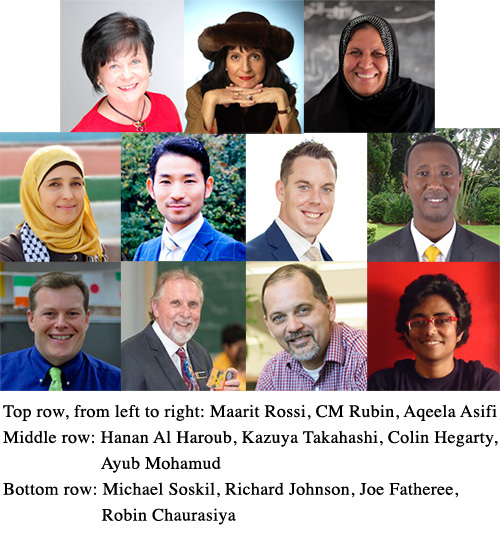
Join me and globally renowned thought leaders including Sir Michael Barber (UK), Dr. Michael Block (U.S.), Dr. Leon Botstein (U.S.), Professor Clay Christensen (U.S.), Dr. Linda Darling-Hammond (U.S.), Dr. MadhavChavan (India), Professor Michael Fullan (Canada), Professor Howard Gardner (U.S.), Professor Andy Hargreaves (U.S.), Professor Yvonne Hellman (The Netherlands), Professor Kristin Helstad (Norway), Jean Hendrickson (U.S.), Professor Rose Hipkins (New Zealand), Professor Cornelia Hoogland (Canada), Honourable Jeff Johnson (Canada), Mme. Chantal Kaufmann (Belgium), Dr. EijaKauppinen (Finland), State Secretary TapioKosunen (Finland), Professor Dominique Lafontaine (Belgium), Professor Hugh Lauder (UK), Lord Ken Macdonald (UK), Professor Geoff Masters (Australia), Professor Barry McGaw (Australia), Shiv Nadar (India), Professor R. Natarajan (India), Dr. Pak Tee Ng (Singapore), Dr. Denise Pope (US), Sridhar Rajagopalan (India), Dr. Diane Ravitch (U.S.), Richard Wilson Riley (U.S.), Sir Ken Robinson (UK), Professor Pasi Sahlberg (Finland), Professor Manabu Sato (Japan), Andreas Schleicher (PISA, OECD), Dr. Anthony Seldon (UK), Dr. David Shaffer (U.S.), Dr. Kirsten Sivesind (Norway), Chancellor Stephen Spahn (U.S.), Yves Theze (LyceeFrancais U.S.), Professor Charles Ungerleider (Canada), Professor Tony Wagner (U.S.), Sir David Watson (UK), Professor Dylan Wiliam (UK), Dr. Mark Wormald (UK), Professor Theo Wubbels (The Netherlands), Professor Michael Young (UK), and Professor Minxuan Zhang (China) as they explore the big picture education questions that all nations face today.
The Global Search for Education Community Page
C. M. Rubin is the author of two widely read online series for which she received a 2011 Upton Sinclair award, “The Global Search for Education” and “How Will We Read?” She is also the author of three bestselling books, including The Real Alice in Wonderland, is the publisher of CMRubinWorld, and is a Disruptor Foundation Fellow.
Follow C. M. Rubin on Twitter: www.twitter.com/@cmrubinworld




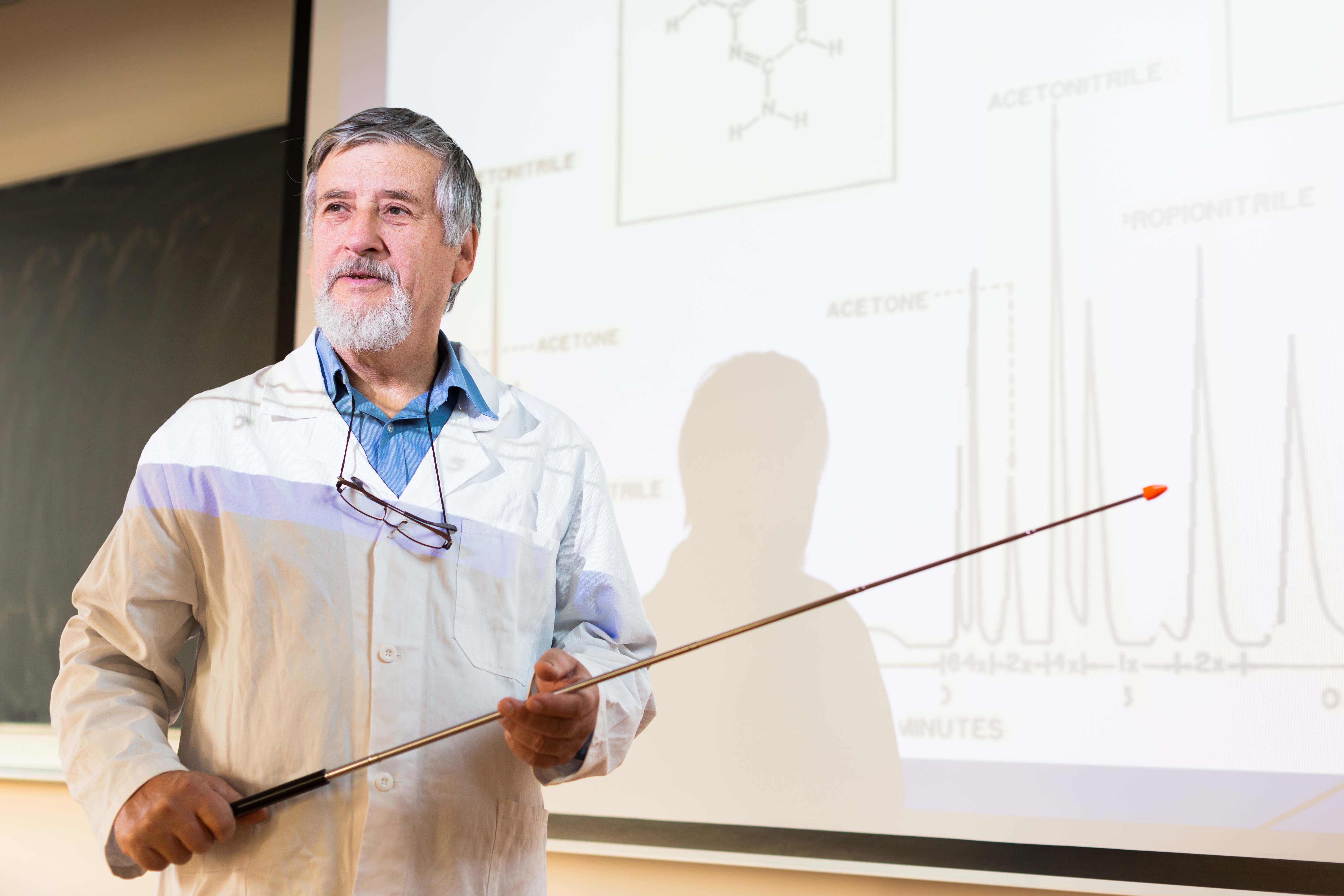

Recent Comments